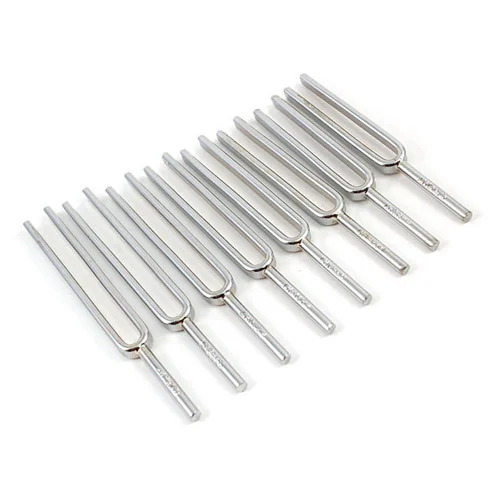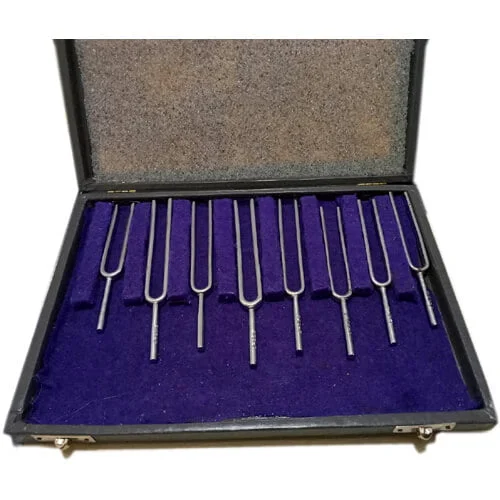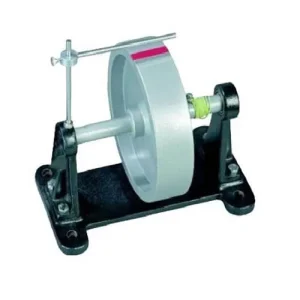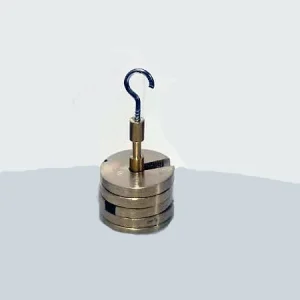Tuning Fork for Physics Experiment 8 Pcs 1Set that are including 512-G, 288-B, 341-F, 256-C, 320-E, 384-G, 426-A, and 480-B. Economy tuning fork to be used in science experiments. Tuning may be +/- 5% of the stated frequency. 8 Pcs Per Set, Steel Forks and Made in India.
A tuning fork is a valuable tool in physics experiments, particularly in the study of sound and vibrations. Its simple design consists of a metal prong shaped like a fork, which produces a specific pitch when struck.
How It Works
When a tuning fork is struck, it vibrates, creating sound waves in the air. The frequency of these vibrations determines the pitch of the sound. For example, a standard tuning fork often resonates at 480 Hz, which corresponds to the musical note A. This makes it ideal for sound experiments and musical applications.
Applications in Experiments
- Sound Waves: Tuning forks are perfect for demonstrating sound wave propagation. Students can observe how sound travels through different media, such as air, water, or solid materials.
- Frequency Measurement: By using multiple tuning forks with different frequencies, students can study harmonic relationships and interference patterns. This helps illustrate concepts such as resonance and standing waves.
- Demonstrating Pitch and Tone: Tuning forks help illustrate how different frequencies produce different pitches. This is useful in both physics and music education.
- Measuring Speed of Sound: In controlled environments, tuning forks can help measure the speed of sound. By timing how long it takes for sound to travel a known distance, students can calculate speed accurately.
Benefits of Using Tuning Forks
- Simplicity: Tuning forks are easy to use and require minimal setup, making them accessible for classroom demonstrations.
- Precision: They produce clear, consistent tones, allowing for precise measurements and observations.
- Hands-On Learning: Working with tuning forks encourages active participation and engagement, enhancing the learning experience.
Tuning forks are versatile tools in physics experiments. They provide clear demonstrations of sound principles and foster a deeper understanding of acoustics. Whether used in classrooms or labs, tuning forks remain an essential resource for exploring the fascinating world of sound and vibrations.







